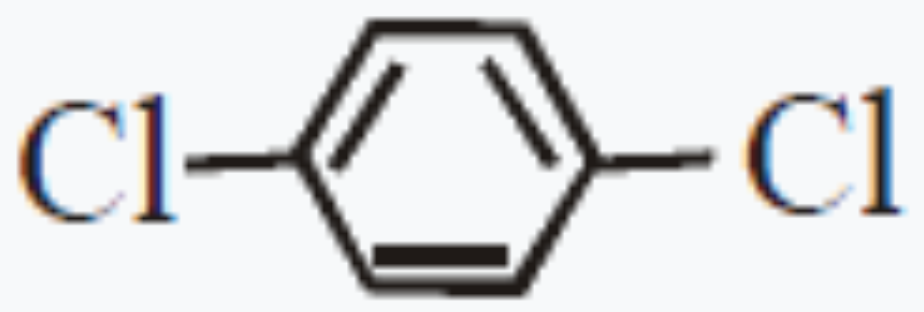Which of the following is having zero dipole moment ?
CCl4
CH3Cl
CH3F
CHCl3
The correct Answer is:B
To determine which of the given molecules has a zero dipole moment, we can analyze the molecular geometry and the electronegativity of the atoms involved in each case. Here’s a step-by-step solution:
Step 1: Identify the Molecules
The question provides several molecules to consider. Let's assume the molecules in question are CCl4 (carbon tetrachloride), CH3Cl (methyl chloride), and CHCl3 (chloroform).
Step 2: Analyze CCl4 (Carbon Tetrachloride)
- Molecular Geometry: CCl4 has a tetrahedral shape.
- Electronegativity: The electronegativity of carbon (C) is 2.55, and that of chlorine (Cl) is 3.16.
- Dipole Moment Calculation: The individual dipole moments from each C-Cl bond will point towards the chlorine atoms. However, due to the symmetrical tetrahedral shape, the dipole moments cancel each other out. Therefore, CCl4 has a zero dipole moment.
Step 3: Analyze CH3Cl (Methyl Chloride)
- Molecular Geometry: CH3Cl has a tetrahedral shape as well.
- Electronegativity: The electronegativity of hydrogen (H) is 2.20, and that of chlorine (Cl) is 3.16.
- Dipole Moment Calculation: The dipole moments from the C-Cl bond will point towards chlorine, while the C-H bonds will point towards carbon. The resultant dipole moment will not cancel out completely, resulting in a net dipole moment. Therefore, CH3Cl does not have a zero dipole moment.
Step 4: Analyze CHCl3 (Chloroform)
- Molecular Geometry: CHCl3 also has a tetrahedral shape.
- Electronegativity: The electronegativity values are the same as before.
- Dipole Moment Calculation: Similar to CH3Cl, the dipole moments from the three C-Cl bonds will point towards chlorine, while the C-H bond will point towards carbon. The resultant dipole moment will also not cancel out completely, resulting in a net dipole moment. Therefore, CHCl3 does not have a zero dipole moment.
Conclusion
Based on the analysis:
- CCl4 (Carbon Tetrachloride) is the only molecule that has a zero dipole moment due to its symmetrical tetrahedral shape, which allows the dipole moments to cancel out.
Final Answer
The molecule with zero dipole moment is CCl4 (Carbon Tetrachloride).
---
The question provides several molecules to consider. Let's assume the molecules in question are CCl4 (carbon tetrachloride), CH3Cl (methyl chloride), and CHCl3 (chloroform).
- Molecular Geometry: CCl4 has a tetrahedral shape.
- Electronegativity: The electronegativity of carbon (C) is 2.55, and that of chlorine (Cl) is 3.16.
- Dipole Moment Calculation: The individual dipole moments from each C-Cl bond will point towards the chlorine atoms. However, due to the symmetrical tetrahedral shape, the dipole moments cancel each other out. Therefore, CCl4 has a zero dipole moment.
- Molecular Geometry: CH3Cl has a tetrahedral shape as well.
- Electronegativity: The electronegativity of hydrogen (H) is 2.20, and that of chlorine (Cl) is 3.16.
- Dipole Moment Calculation: The dipole moments from the C-Cl bond will point towards chlorine, while the C-H bonds will point towards carbon. The resultant dipole moment will not cancel out completely, resulting in a net dipole moment. Therefore, CH3Cl does not have a zero dipole moment.
- Molecular Geometry: CHCl3 also has a tetrahedral shape.
- Electronegativity: The electronegativity values are the same as before.
- Dipole Moment Calculation: Similar to CH3Cl, the dipole moments from the three C-Cl bonds will point towards chlorine, while the C-H bond will point towards carbon. The resultant dipole moment will also not cancel out completely, resulting in a net dipole moment. Therefore, CHCl3 does not have a zero dipole moment.
Based on the analysis:
- CCl4 (Carbon Tetrachloride) is the only molecule that has a zero dipole moment due to its symmetrical tetrahedral shape, which allows the dipole moments to cancel out.
The molecule with zero dipole moment is CCl4 (Carbon Tetrachloride).
Similar Questions
Knowledge Check
- Question 1 - Select One
Which of the following will have zero dipole moment ?
A1,1−DichloretheneBcis−1,2DichloroetheneCtrans−1,2−DichloroetheneDAll have equal dipole moment - Question 2 - Select One
Which of the following pairs has zero dipole moment ?
ACH2Cl2andNF3BSiF4andBF3CPCl3andClFDBF3andNF3 - Question 3 - Select One
Which of the following has a non zero dipole moment ?
A B
B CCH4DBF3
CCH4DBF3
Which of the following have zero dipole moment ?
View Solutionwhich of the following have zero dipole moment?
View SolutionWhich of the following has almost zero dipole moment?
View SolutionWhich of the following has zero dipole moment value ?
View SolutionWhich of the following has zero dipole moment?
View Solution

